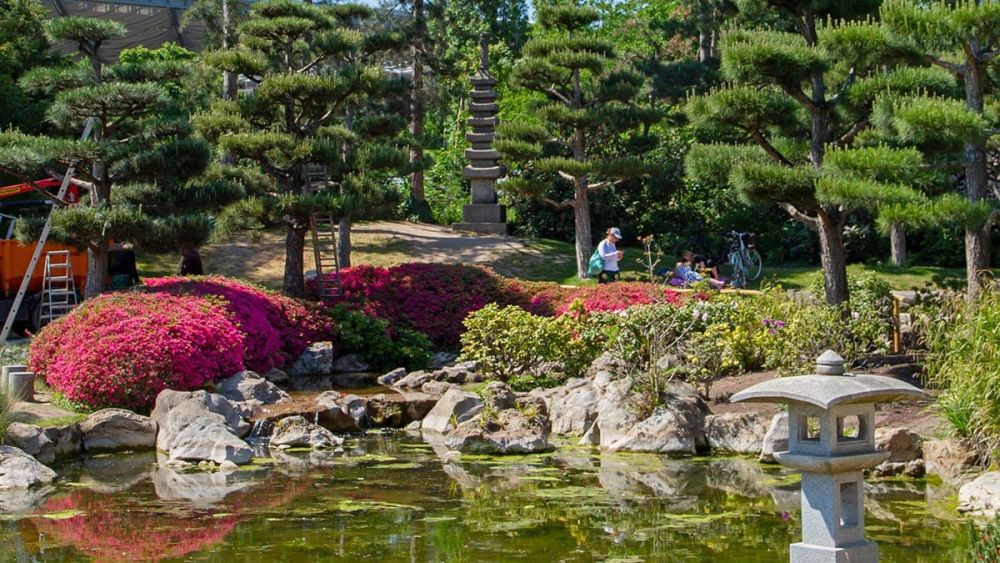

Located in the heart of Düsseldorf, the thriving capital city of the North Rhine-Westphalia state in Germany, Nordpark is a beautifully landscaped park offering a serene escape from the urban bustle. With its origins dating back to the 1930s, Nordpark has been a cornerstone of leisure and horticulture in the region, attracting locals and tourists alike with its expansive lawns, meticulously designed thematic gardens, and art installations.
Nordpark was officially opened in 1937 and was initially designed for the Reichsgartenschau, a national garden show. Spanning an area of around 36.6 hectares, it was laid out by the renowned landscape architect Walter von Engelhardt. The park was created to serve as a green lung for the city, offering recreational space to the public. Over the years, it has undergone several modifications and expansions, adapting to the changing needs and tastes of the community.
The exquisite Japanese Garden within Nordpark is a highlight for many visitors, transporting them to the Far East through its tranquil landscapes and authentic architectural features. This masterpiece was created as a gesture of friendship and cultural exchange between Japan and Germany, opening to the public in 1975.
Gifted by the Japanese community, the garden features traditional elements such as stone lanterns, a tea house, and ornate bridges, all surrounded by native Japanese plants. It is especially beautiful during the cherry blossom season, when the trees are in full bloom and the whole area takes on a mesmerizing, romantic ambience.
The addition of the Japanese Garden significantly boosted Nordpark's appeal as a tourist destination. The unique blend of German landscaping with an authentic Japanese aesthetic has drawn visitors who seek both the tranquility of Eastern culture and the more familiar beauty of a European park.
Nordpark and the Japanese Garden have played an important role in enriching Düsseldorf's cultural landscape, offering a platform for multicultural events and fostering a sense of global community. They are not only places of natural beauty but also serve as symbols of peace and friendship between nations.
In recent years, sustainable tourism has gained momentum, and places like Nordpark are gaining popularity for providing eco-friendly recreational activities. Visitors are also seeking more immersive cultural experiences, which is why the Japanese Garden's offer of tea ceremonies and seasonal festivals resonate well with modern trends.
Health and wellness have also become a significant trend, and Nordpark's open spaces and peaceful surroundings make it an ideal spot for activities like yoga, tai chi, and meditation – drawing a diverse range of visitors looking to maintain their well-being while traveling.
Given the global situation with travel uncertainties due to health concerns, outdoor spaces such as Nordpark are increasingly valued for their ability to provide safe, socially-distanced environments where people can still enjoy leisure activities and appreciate the beauty of nature.
In conclusion, Nordpark and the Japanese Garden remain essential fixtures of Düsseldorf’s tourism landscape, offering a timeless appeal through their intricate designs, seasonal beauty, and commitment to fostering international friendship and understanding.